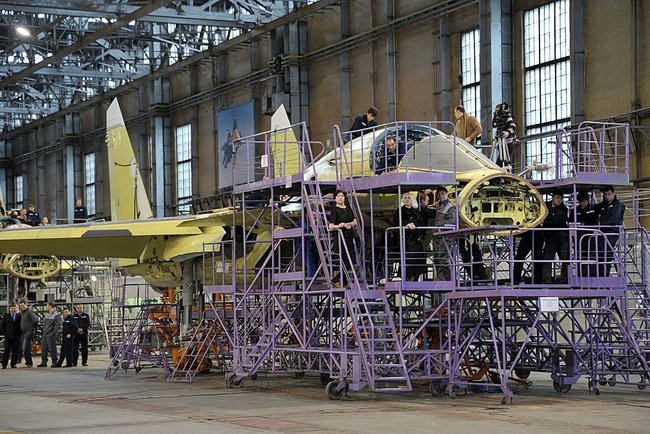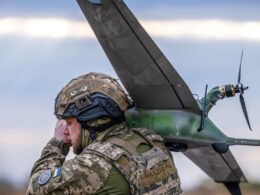Russia's increased defense industrial base (DIB) production is unlikely to be sustainable in the medium- and long-term due to labor shortages, decreased weapons and equipment stockpiles, and an inability to fully compensate for military and dual-use items it can no longer acquire due to sanctions, the Institute for the Study of War (ISW) has analyzed reports indicating that.
According to The Wall Street Journal (WSJ), "a senior NATO official stated that Russia can likely sustain its current war effort for two to five more years." However, the report notes that "Russia's reported tank 'production' numbers in recent years largely reflect restored and modernized tanks drawn from storage rather than new production," as observed by ISW.
Open-source researchers have assessed that "Russia has reportedly removed 25 to 40 percent of its tank strategic reserves, depending on the model, from open-air storage facilities since 2022," according to the report. Carnegie Endowment for International Peace's Dara Massicot stated, "Russia's 'remaining inventory will dwindle in the next couple of years' if Russia continues its current tempo of operations."
The WSJ reported that the Bank of Finland concluded, "Russia may not be able to sustain its increased DIB production as the DIB takes personnel and material resources away from other sectors of the Russian economy." The report also stated that "the Russian DIB is suffering from a personnel shortage of about 20 percent and some DIB enterprise employees have recently complained about the lack of training and tools."
According to the Royal United Services Institute (RUSI), "Russia currently has about three million rounds of old artillery ammunition in its stockpiles, but much of it is in poor condition." The WSJ reported that "RUSI and other Western analysts have assessed that Russia's current domestic ammunition production is not sufficient for its war in Ukraine, so Russia will likely continue relying on supplies from partners."
CNN reported that "NATO intelligence estimates that Russia is producing about 250,000 artillery munitions of unspecified caliber per month, totaling about three million shells per year." However, a senior European intelligence official told CNN that "the US and Europe can collectively produce only about 1.2 million shells of unspecified calibers per year for Ukraine."
Other key takeaways from the ISW's report:
- A Ukrainian military observer offered assessments of Russian force generation and defense industrial base (DIB) capacities that are consistent with ISW’s previous assessments.
- Transfers of North Korean weapons to Russia by sea have apparently resumed after a pause since mid-February 2024.
- A Ukrainian military source noted that Russian forces are increasingly using grenades equipped with chemical substances in the Zaporizhzhia direction, in potential violation of the Chemical Weapons Convention (CWC) to which Russia is a signatory.
- The Moldovan Ministry of Foreign Affairs (MFA) has summoned Russian Ambassador to Moldova Oleg Vasnetsov in response to claims that Russia will operate polling stations in pro-Russian Moldovan breakaway region Transnistria during the Russian presidential election.
- Russia, China, and Iran will hold the joint Maritime Security Belt – 2024 naval exercise in the Gulf of Oman between 11-15 March.
- The Russian Ministry of Foreign Affairs (MFA) claimed that the West intends to use Armenia as a tool against Russia, a notable escalation in its information operations criticizing Armenian efforts to distance itself from security relations with Russia.
- Russian President Vladimir Putin signed a bill on 11 March that allows Russian authorities to further restrict actors it deems “foreign agents” to consolidate control over the Russian information space ahead of the presidential election.
- Russian President Vladimir Putin continues efforts to cater to Russian servicemembers and their families with the promise of various social benefits.
Read also:
- ISW: Russia aims for mass production of advanced glider bombs
- UK intel: Russia threatens to deport Ukrainians without Russian passports from occupied areas





